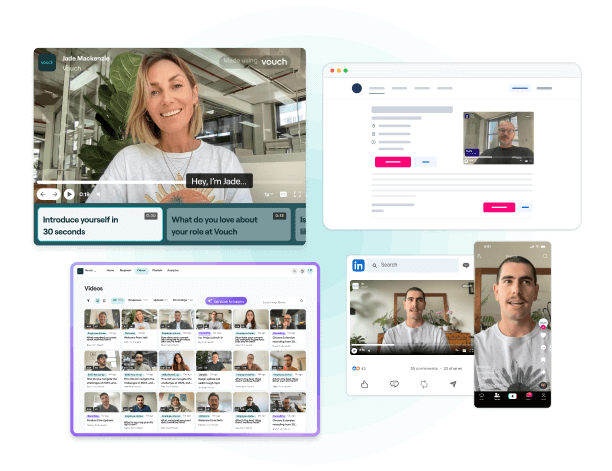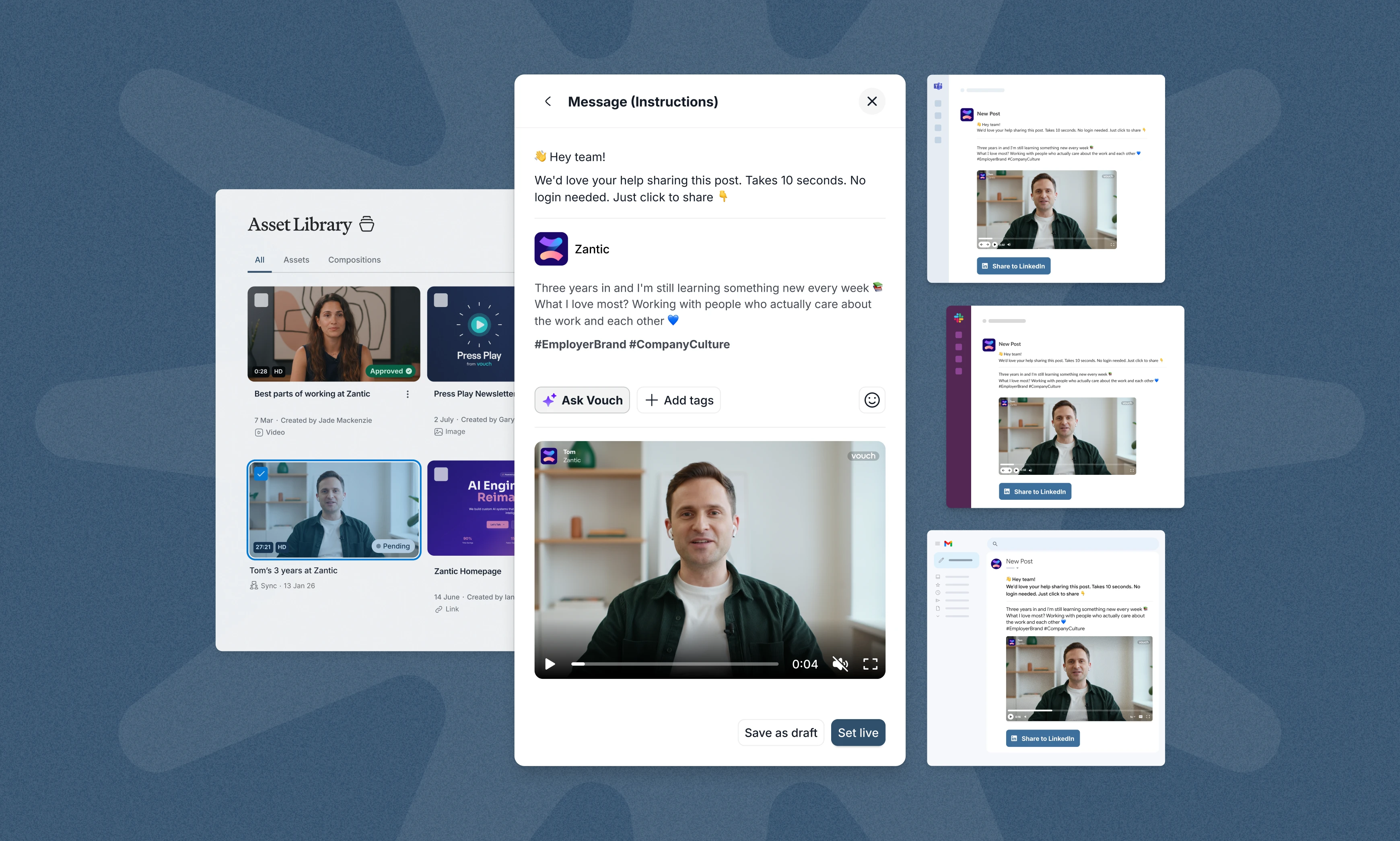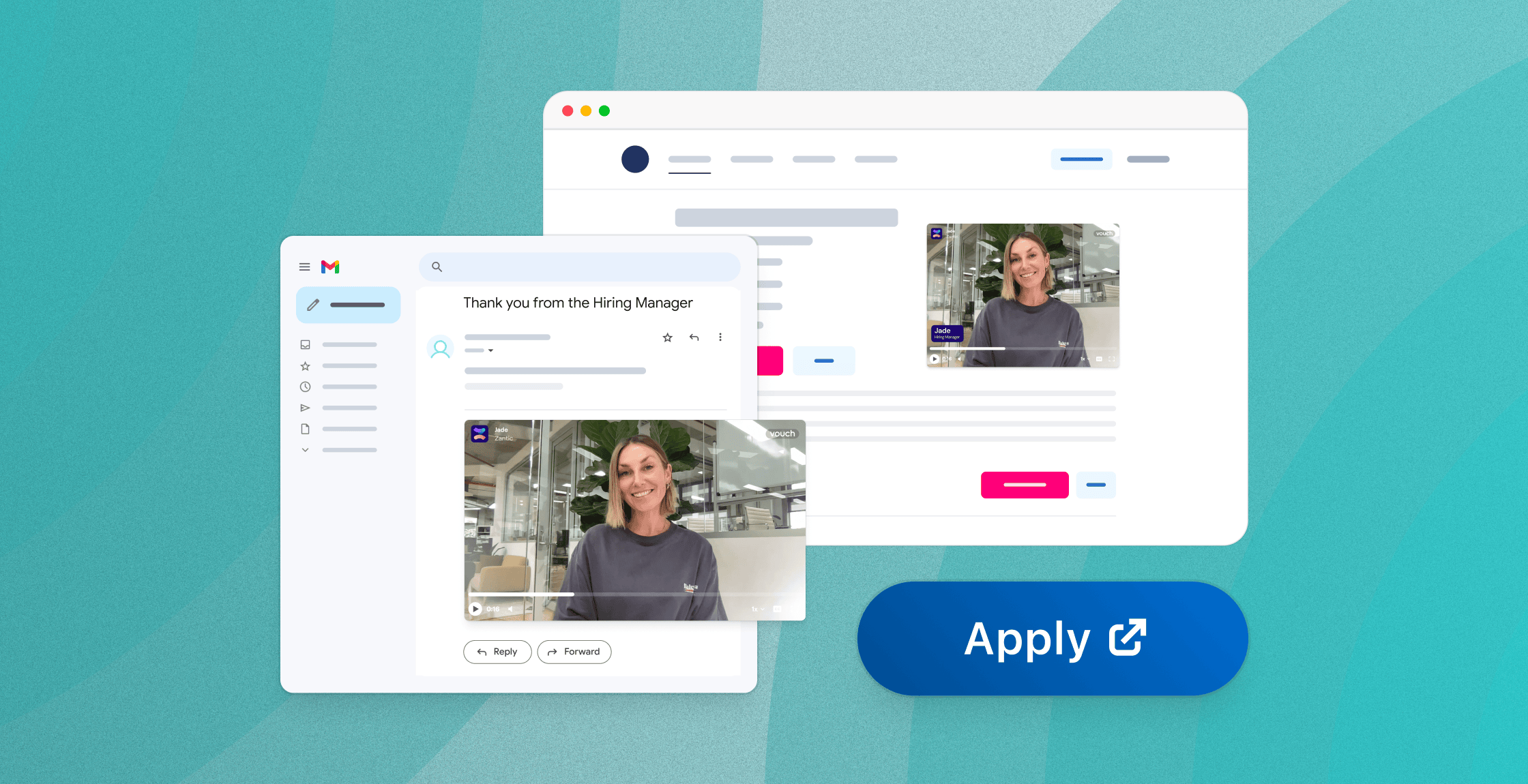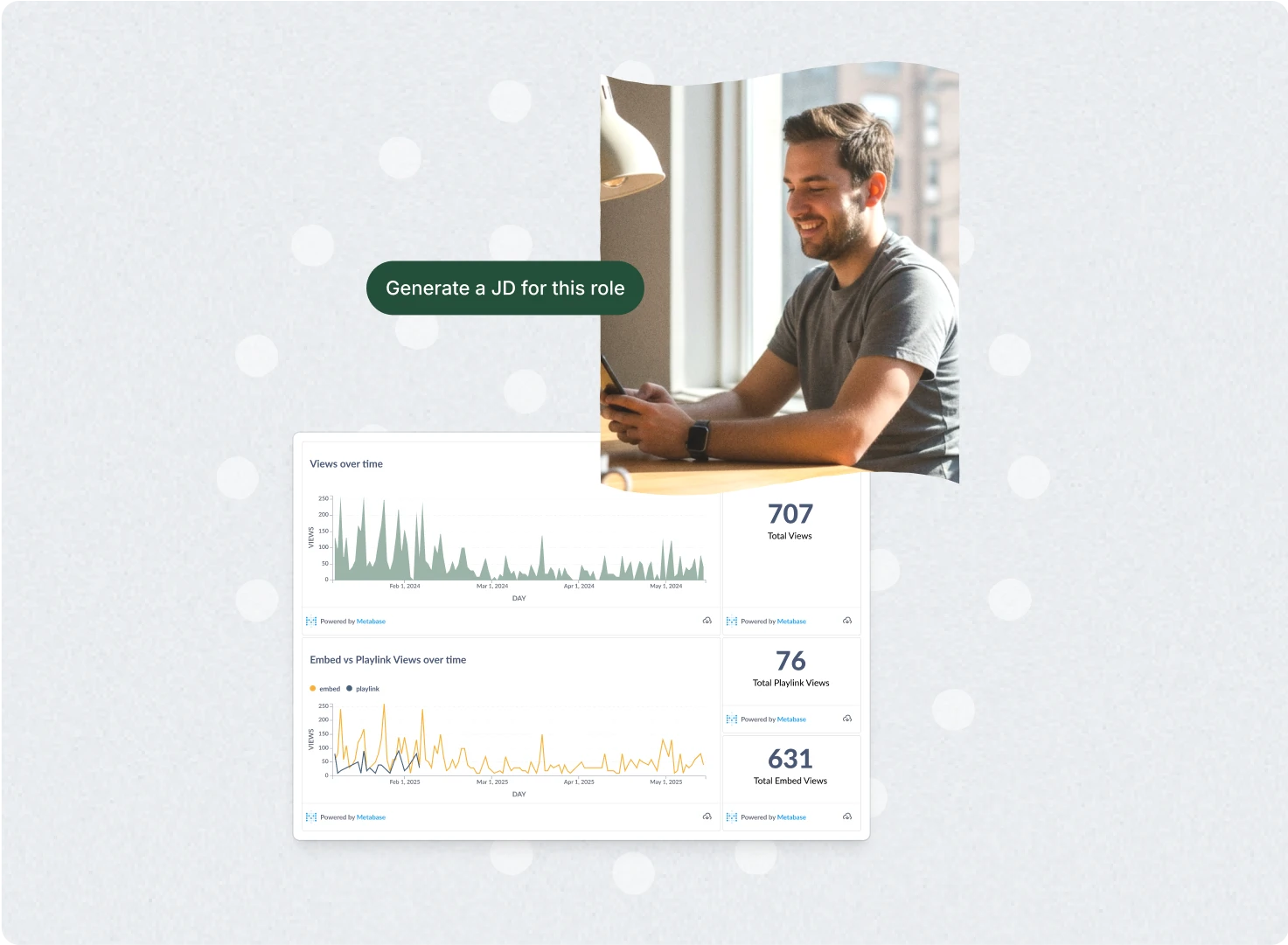Talent acquisition is more than filling vacant positions - it's about strategically attracting, onboarding, and retaining top-tier talent that aligns with your company's long-term goals.
At the center of hiring for long-term success is the Talent Acquisition Specialist (TAS).
But what does a TAS do exactly?
In this article, we'll explain the ins and outs of the role, including daily responsibilities, required skills, real-world data, and even a case study for better unpacking this vital role in 2026 and beyond.
Let's get started.
What is The Role of a Talent Acquisition Specialist?
A Talent Acquisition Specialist focuses on finding the best potential candidates for a company, working to build relationships with these candidates, and maintaining a strong pipeline for future hiring.
Unlike traditional recruiters, who often only focus on filling immediate job openings, talent acquisition specialists play a more strategic role. They look at long-term company goals and align the hiring process to meet those needs.
Let's break down a TAS role even further.
Bring your employer brand to life
- Empower employees’ storytelling
- Transform careers sites with video
- AI-driven video editing
- Publish videos anywhere

The 5 Key Responsibilities of a Talent Acquisition Specialist
The primary duties of a Talent Acquisition Specialist can be divided into several phases of the entire recruitment process, commonly known as full-cycle recruiting. These phases include:
#1. Sourcing Candidates
Specialists use a range of tools and platforms, such as job boards, social media platforms, modern video tools like Vouch, and recruitment agencies, to find qualified candidates. Many leverage AI-powered sourcing tools to help speed up the process and identify suitable candidates quickly.
#2. Screening and Interviews
After sourcing potential candidates, TAS professionals perform initial interviews and basic candidate screening. These first interactions are crucial for evaluating whether the candidate meets the job requirements and fits the company culture. At this stage, your TAS might even suggest introducing new processes and techniques, like candidate video screenings, for example.
#3. Selection and Hiring
The Talent Acquisition Specialist works alongside HR and hiring managers to evaluate and select the ideal candidate profile. This includes fine-tuning the selection process, making hiring decisions, and negotiating offers. At this stage, succession planning is also a consideration for more senior roles.
#4. Employer Branding Initiatives
Building a strong employer brand is another key responsibility. This includes representing the company at recruitment events like job fairs, producing content like Video for social media, maintaining a visible presence on social platforms, and ensuring that the candidate experience is positive from start to finish.
#5. Pipeline Development
Even when there are no vacant positions, one of the biggest values talent acquisition specialists provide is nurturing relationships with future candidates. This means keeping a close eye on the job market, being active on social media like LinkedIn and Twitter and maintaining connections to build a strong talent pipeline.
What are the 5 Core Skills of Successful Talent Acquisition Specialists?
To use a quote from Liam Neeson in the movie Taken, a TAS needs a "very particular set of skills" to be effective in the role.
Here are some of the essential skills:
1. Excellent Communication Skills
Strong candidate and internal communication abilities are critical for interviewing a potential hire, negotiating with a hiring manager and your executive team, and even building your employer brand on social media.
2. Amazing Organizational Skills
With so many moving parts - like interviews, job postings, and meetings - organizational abilities help ensure that the recruitment process moves smoothly at all times.
3. Familiarity with Software like Applicant Tracking Systems (ATS)
The majority of mid-to-large organizations use applicant tracking systems (ATS) to manage candidate data. Tools like Vouch help at all stages of the recruitment process, so being tech-savvy and knowing how to leverage these tools is essential.
4. Interpersonal Skills
Building relationships with candidates and internal teams requires strong people skills and soft skills for negotiations. Candidates expect timely feedback and a seamless process, which requires ongoing communication.
5. Recruiting Strategy and Market Trend Knowledge
Understanding the competitive job market is important. This means staying updated on market trends, especially in fields like tech, medical, Aerospace & Defense for Talent Acquisition Specialists.
How do Talent Acquisition Specialists Differ from Recruiters?
While recruitment and talent acquisition might sound similar, there are distinct differences.
The recruitment process is often more short-term and reactive, designed to fill immediate needs. Talent acquisition, on the other hand, takes a broader, more strategic approach.
Talent Acquisition Specialists are tasked with future hiring planning and often collaborate with higher-level stakeholders to align hiring strategies with the organization's growth trajectory. TAS specialists help you build your talent roadmap and pipeline.
Example Case Study: Hiring a Strategic Talent Acquisition Specialist
Let's take a hypothetical case study that looks at the kind of results you can expect when hiring a TAS.
Company:
TechCorp, a mid-sized software development company, was struggling to find skilled machine learning engineers and other technical roles for a new project amid a very tight job market. They hired a Talent Acquisition Specialist to lead their recruitment efforts.
The Challenge:
TechCorp needed developers with niche skills (think Python, AI, and machine learning) but faced intense competition from larger companies with bigger hiring budgets.
The Solution:
The Talent Acquisition Specialist revamped TechCorp's employer branding strategy, highlighting its company culture and flexible work environment, which appeals to the best tech talent. They also revamped their job descriptions to make them more appealing and clear on platforms like LinkedIn and Indeed.
Additionally, they attended several virtual job fairs and hosted webinars to attract talent. Through this innovative recruitment strategy, they built a strong talent pipeline and hired three senior developers in a six-month period, ultimately boosting the company's retention rate by 25%.
What are some Data-Backed Insights on Talent Acquisition in 2026?
The Society for Human Resource Management (SHRM) reported in 2026 that the average cost-per-hire in the U.S. is approximately $4,700, but this number can spike to over $10,000 for executive roles.
Here are some additional statistics to give you a better picture:
- 76% of hiring managers in the U.S. stated that attracting top-tier talent is their biggest challenge. Source: LinkedIn Talent Solutions
- Companies that invest in employer branding see 1-2x faster time-to-hire, according to Glassdoor. Source: Glassdoor Economic Research
- 58% of HR professionals believe that AI-powered sourcing tools will be essential for talent acquisition moving forward. Source: SHRM 2024 Annual Report
- 30% of companies have begun integrating advanced applicant tracking systems to improve the candidate evaluation process. Source: HR Dive
These data points highlight the growing importance of having a qualified talent acquisition specialist leading the charge in a competitive job market.
What are the different Types of Talent Acquisition Roles?
Here's a list of common Talent Acquisition roles and those that are very closely related, with summaries for each:
Talent Acquisition Specialist: Focuses on sourcing, interviewing, and selecting candidates for open positions. Works closely with hiring managers to meet organizational needs.
Talent Acquisition Manager: Leads the talent acquisition team, develops recruitment strategies, and ensures hiring processes align with business goals. Oversees the entire recruitment lifecycle.
Recruiter: Manages the recruitment process from sourcing candidates to final interviews. Often specialized in specific industries or roles.
Sourcing Specialist: Dedicated to identifying and attracting potential candidates through research and outreach. Focuses on building talent pipelines and passive candidate engagement.
Employer Branding Specialist: Works on promoting your company's culture and values to attract top talent. Manages employer brand strategies, content creation, and recruitment marketing campaigns.
Campus Recruiter: Focuses on university relations and hiring entry-level talent through internships, graduate programs, and campus events.
Executive Recruiter: It specializes in recruiting senior-level executives and performing leadership roles. Typically works on highly confidential searches with specific criteria.
Diversity and Inclusion Recruiter: Focuses on sourcing and attracting diverse talent. Works on creating and implementing strategies to enhance diversity in hiring.
Talent Acquisition Coordinator: Provides administrative support for the talent acquisition process, including interview scheduling, candidate communications, and offer letter preparation.
Head of Talent Acquisition: Leads and directs all talent acquisition activities across the organization. Responsible for strategic workforce planning and large-scale recruitment initiatives.
Recruitment Marketing Manager: Manages campaigns and initiatives that promote job opportunities and the company's employment brand through various media channels.
Onboarding Specialist: It focuses on integrating new hires into the company, ensuring a smooth transition, and providing necessary training and resources.
Each role may vary slightly depending on the organization's size and industry, but these are the core functions within talent acquisition.
Where can you find Talent Acquisition Specialists jobs?
You can find Talent Acquisition Specialist jobs through various platforms and strategies. Here are some of the best places to look:
1. Online Job Boards and Career Websites
- LinkedIn: A top platform for finding talent acquisition jobs. Use keywords like "Talent Acquisition Specialist" and apply filters for location, experience level, and company.
- Indeed: Offers a wide range of job postings for talent acquisition roles.
- Glassdoor: Provides job listings along with company reviews and salary insights.
- ZipRecruiter: Another great platform that connects job seekers with employers.
- SimplyHired: Offers job postings across different industries and locations.
2. Company Career Pages
Visit the careers section of companies you're interested in. Many organizations post job openings directly on their websites.
3. Recruitment Agencies
Specialized recruitment firms often have openings for talent acquisition roles. Some agencies focus specifically on HR and recruitment positions.
4. Networking
- LinkedIn Networking: Connect with HR professionals and recruiters, join groups related to recruitment, and participate in discussions to uncover opportunities.
- Industry Events: Attend career fairs, webinars, or networking events focused on HR and recruitment to meet potential employers.
5. Freelance Platforms
- Upwork and Freelancer: Sometimes, companies hire freelance talent acquisition specialists for short-term or remote assignments.
- Fiverr: Some professionals offer recruiting services here as a side hustle or full-time freelance work.
6. Professional Associations and Communities
Join professional groups such as the Society for Human Resource Management (SHRM) or other local HR associations that may have job boards or networking opportunities.
7. Referrals
Let your network know you’re looking for a role in talent acquisition. Many jobs are filled through referrals, so don’t hesitate to reach out to friends, family, and former colleagues.
What is the Career Outlook for Talent Acquisition Specialists in 2025?
With the current job market becoming increasingly competitive, the demand for skilled Talent Acquisition Specialists is on the rise.
In the United States, the average salary for a TAS hovers around USD $65,000 to $90,000, depending on the experience level and industry. The tech and healthcare sectors often pay on the higher end of that range.
The career path also offers plenty of room for advancement, and many Talent Acquisition Specialists move into roles like Talent Acquisition Managers, Consultants, or even Heads of Talent Acquisition or Director of Talent Acquisition.
FAQs
What does a Talent Acquisition Specialist do?
They use a strategic approach to find and attract qualified candidates for current and future job openings.
Is a Talent Acquisition Specialist the same as a recruiter?
Not exactly. A recruiter often focuses on short-term hiring needs, while a TAS looks at long-term talent strategies.
What skills do you need to be a Talent Acquisition Specialist?
Essential skills include excellent communication, organizational abilities, and familiarity with applicant tracking systems.
How much do Talent Acquisition Specialists earn?
Salaries range between $60,000 and $85,000 annually, depending on experience and industry.
What tools do Talent Acquisition Specialists use?
They frequently use applicant tracking systems and AI-powered sourcing tools to streamline the recruitment process.
How does a TAS contribute to company success?
By ensuring that the right people are hired, they align the hiring process with the company's long-term growth.
Can a Talent Acquisition Specialist work in different industries?
Yes, TAS professionals are needed in industries ranging from tech to healthcare and finance.
Summary
A Talent Acquisition Specialist plays a critical role in helping organizations secure the best talent for long-term success.
From building relationships with potential hires to maintaining a pipeline for future roles, a TAS is integral to a company's recruitment strategy.
With hands-on experience in all aspects of full-cycle recruiting, including job fairs, interview techniques, and employer branding initiatives with tools like Vouch, they ensure that companies remain competitive and ready for whatever the future holds.
See Why Talent Acquisition Specialists Love Vouch!
Loved by companies like Canva, Nike, Cisco, HubSpot, Amazon, and more, tools like Vouch make leveraging Video in your business remarkably easy.
Be sure to book a Vouch demo today and chat with a video content expert.
You might also like

Elevate Your Brand Today With Vouch
Discover how Vouch can accelerate talent acquisition while helping you stay on-brand.






